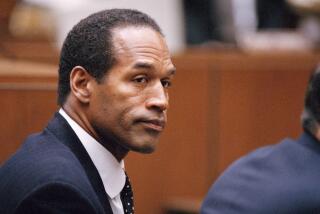Self-image as a healing force
Sometimes an idea or concept can be irresistible to a writer, bedeviling their thoughts in a way that can only be resolved by returning to the topic for another bite of the metaphorical apple. Feminist, cultural critic and intellectual, bell hooks has in three years written three books that have variously explored love in American culture (“All About Love”), love among African Americans (“Salvation”) and the female search for love (“Communion”).
In the preface to “Salvation,” hooks argued that “the abandonment of a discourse on love, of strategies to create a foundation of self-esteem and self-worth that would undergird the struggles for self-determination, laid the groundwork for the undermining of all our efforts to create a society where blackness could be loved, by black folks, by everyone.” But while “Salvation” examined in depth the many forms of love and how blacks are challenged to sustain loving relationships, it was clear that the provocative challenge hooks raised about self-esteem would have to wait for another time.
That time has come with the publication of “Rock My Soul: Black People and Self-Esteem,” in which hooks explores the importance of a positive self-image to a wholly integrated sense of self. Using psychologist Nathaniel Branden’s influential work, “Six Pillars of Self-Esteem” (personal integrity, self-acceptance, self-responsibility, self-assertion, living consciously and living purposefully) in addition to the writings of Stephen Carter, Toni Cade Bambara, Haki Madhubuti, Eckhart Tolle and the Dalai Lama, among others, hooks contends that, despite more than a century of struggle for social and economic parity, poor self-esteem has reached epidemic proportions among black people of all social and economic strata. It is, she writes convincingly, the underlying cause of many of the ills of the race.
Most readers will be able to identify with the obvious manifestations of poor self-esteem in less privileged blacks -- hooks cites black male rappers’ belittlement of women in their music and black-on-black violence as two glaring examples -- but she also makes a compelling argument for a depression among the black middle class for its failure to “assimilate” into a culture that still does not accept it. Rampant consumerism and color prejudice within the race are also symptoms of the problem. But unlike the much-ballyhooed Moynihan report of the 1960s (which blamed single female-headed households for black “pathology”) or the current crop of black conservatives (who discount black pain by labeling those who speak out as “victimologists”), hooks believes that self-esteem is what is most desperately needed to heal the pain of black life in what she sees as an increasingly “white supremacist capitalist patriarchy.”
This unwieldy phrase, one that appears frequently throughout the book, may be a difficult one for many whites, and for some blacks, to accept. However, it is central to hooks’ argument that notions of male domination in family life and society (originated by whites but adopted by conservative blacks), combined with “religious teachings that overemphasize self-sacrifice ... and hedonistic desires for material goods that are seen as indicators of success,” have ensnared blacks in feelings of worthlessness and threaten to destroy self-esteem as surely as slavery did for untold thousands of their ancestors. Furthermore, hooks contends that the assassination of visionaries, such as Martin Luther King Jr. and Malcolm X, and the civil rights movement’s subsequent refocusing on equal opportunity, as defined only by material gain, robbed blacks of the opportunity to live more meaningfully or to address the memory of such historical traumas as slavery. “Money and jobs have not made us whole, nor will they,” she writes. “We are sorely in need of abundant work that looks at the violence that remains at the core of the lives of many black folk in our nation ....Until the legacy of remembered and reenacted trauma is taken seriously black America cannot heal.”
Hooks’ call for healing is reminiscent of South Africa’s process of remembering and seeking reconciliation for atrocities perpetrated against blacks during apartheid. Yet hooks’ call is both communal (the use of caring therapists, spiritual counselors or loved ones) and personal. The personal dimension for hooks is embodied in Branden’s six pillars of self-esteem, translated in “Rock My Soul” as living with integrity in the white and black worlds one inhabits; refusing to blame racism for all of one’s problems, particularly those that stem from family or personal baggage; employing critical thinking to notions of patriarchy, sexism and racism; being honest in one’s intimate relationships; taking responsibility for one’s own self-development; and taking control of addictions to food, drugs and alcohol.
Some of what hooks argues in “Rock My Soul” has been touched upon in several of her other books, some of which she freely quotes, others which may seem too familiar to readers of “Salvation” and the other recent books on love. Yet these drawbacks, along with an occasional tendency toward repetition and verbosity, are minor in light of the fresh challenges she makes to conservative notions of African American life that too often make black people either victims or culprits in their reputed demise. Using her blend of theory, personal testimony and social critique, bell hooks’ “Rock My Soul” is a tremendous service to Americans of all colors.
More to Read
Sign up for our Book Club newsletter
Get the latest news, events and more from the Los Angeles Times Book Club, and help us get L.A. reading and talking.
You may occasionally receive promotional content from the Los Angeles Times.







